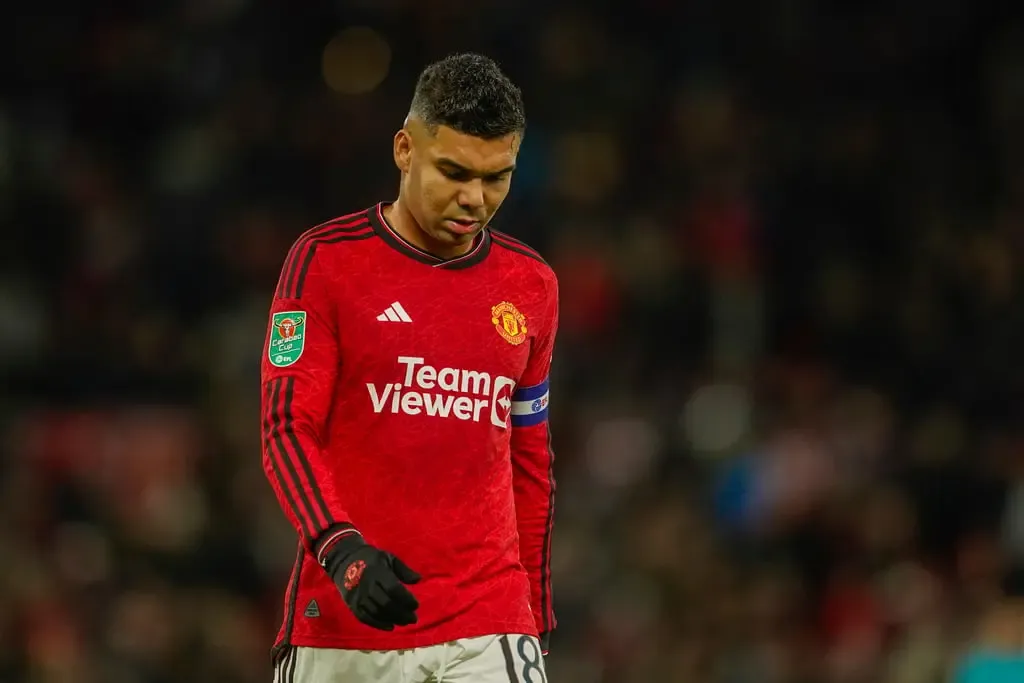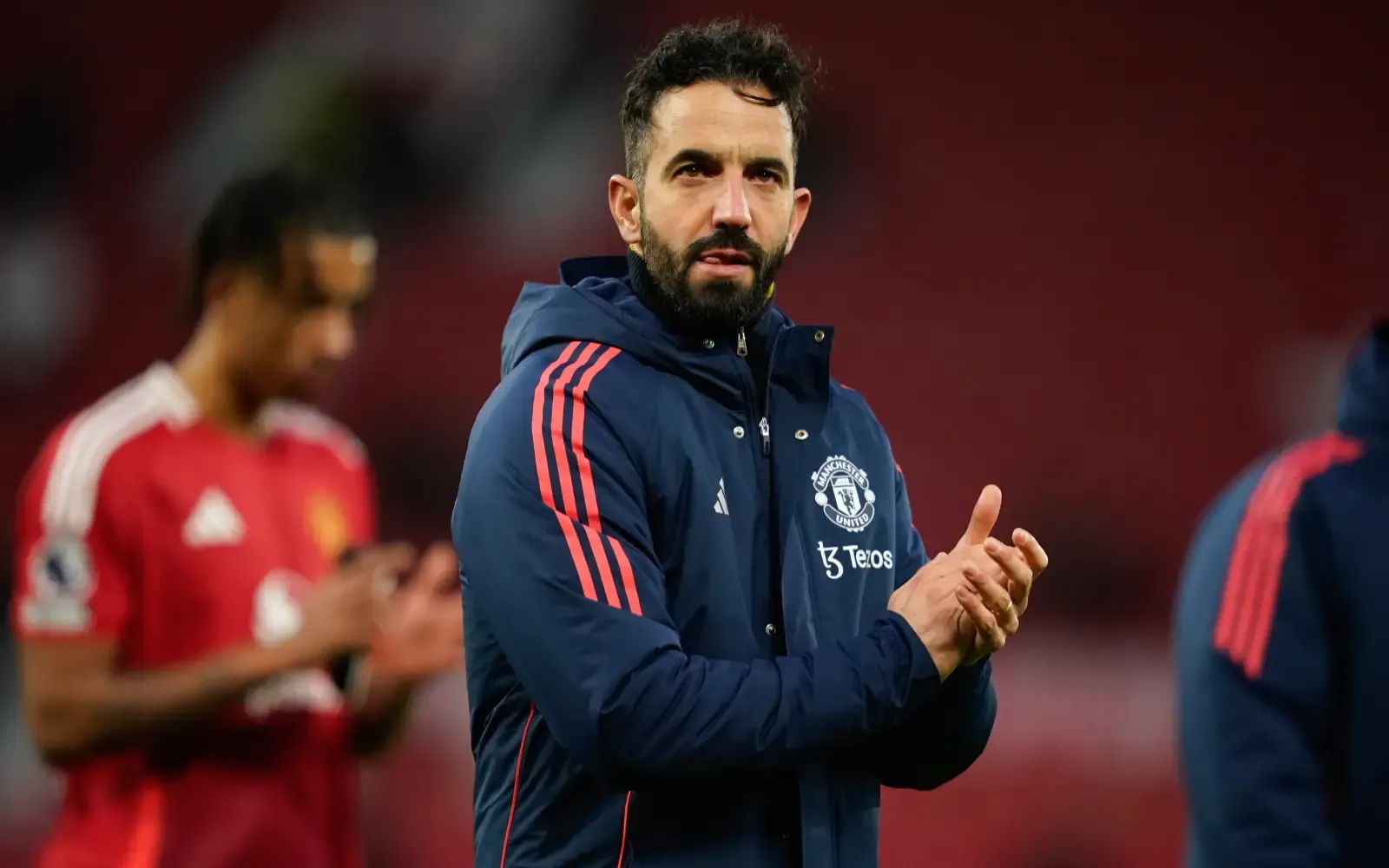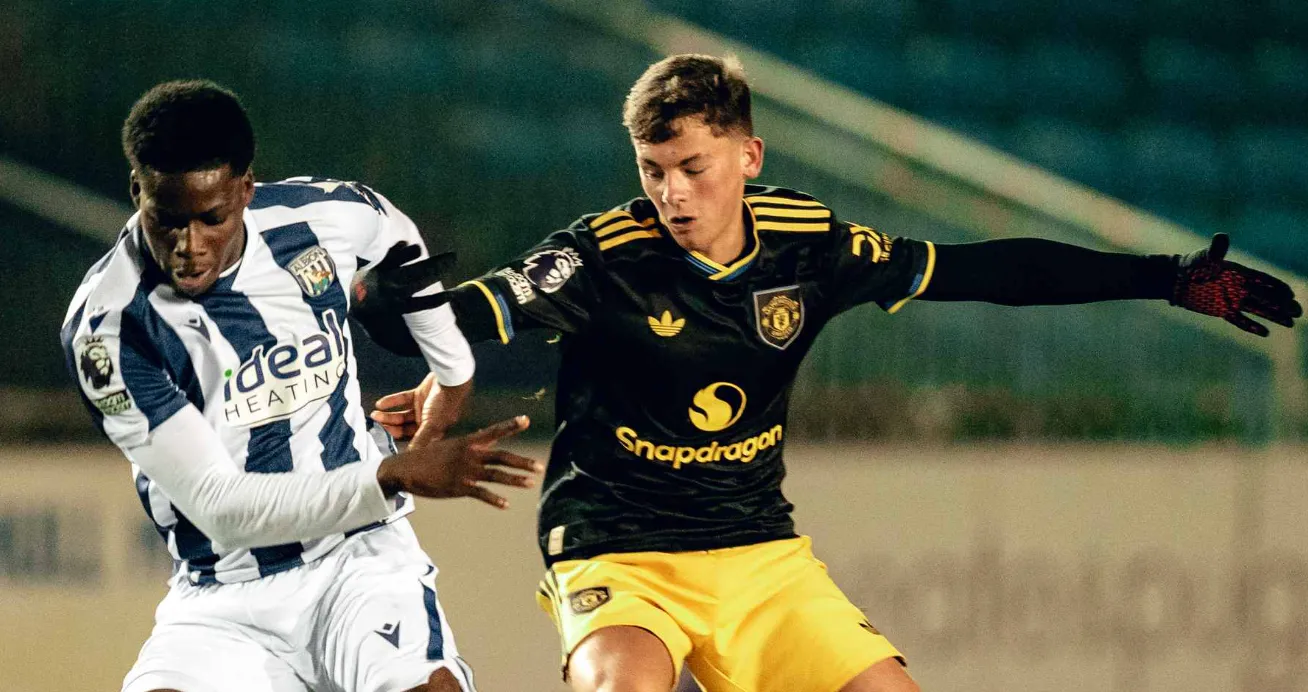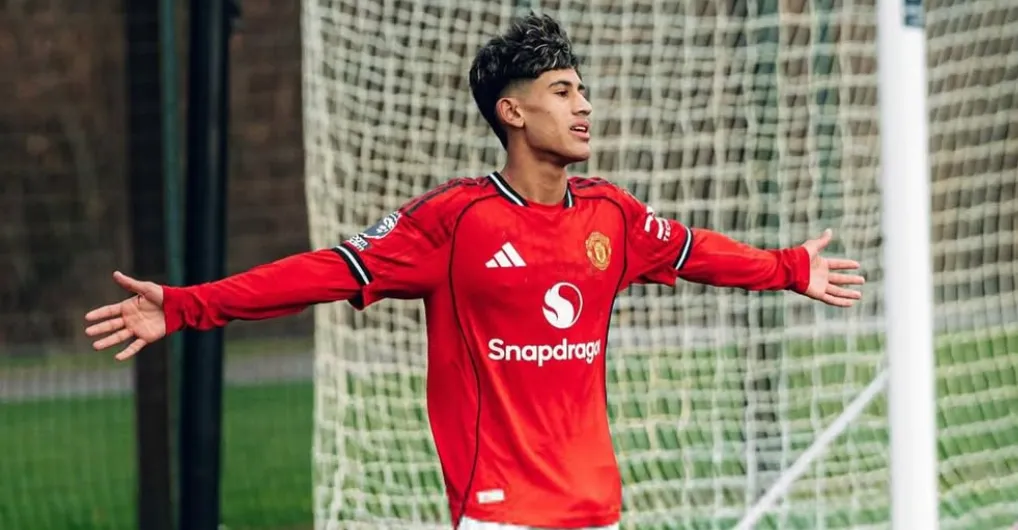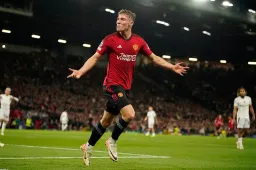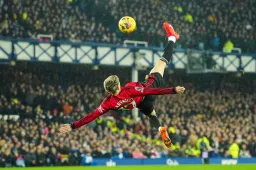Amorim's 'dilema' as 'Man Utd are not good enough to compete in Europe and the league'
NewsMonday, 05 May 2025 at 18:04
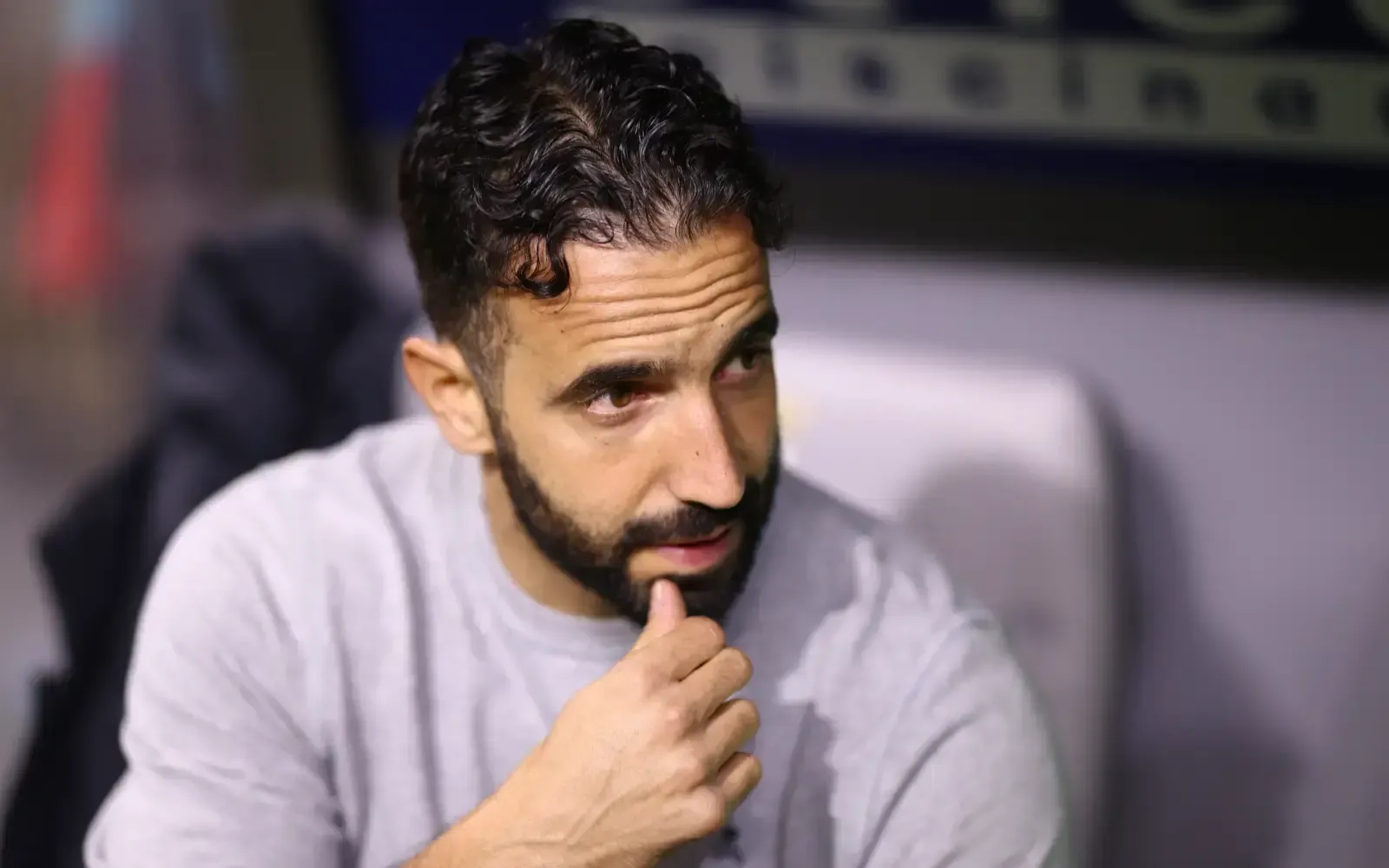
Manchester United’s manager, Ruben Amorim, delivered a stark assessment of his team’s readiness, admitting they are unprepared to compete effectively in both the Premier League and the Champions League next season.
This candid admission followed a disheartening 4-3 defeat to Brentford, a result that marked United’s 16th league loss of the campaign—their worst in 35 years—and mathematically consigned them to a bottom-half finish in the Premier League standings.
The loss underscored the challenges facing Amorim as he navigates a turbulent season, balancing domestic struggles with European ambitions.
Read also
Amorim’s decision to prioritize Thursday’s Europa League semi-final second leg against Athletic Club, where United hold a commanding 3-0 aggregate lead, was evident in his team selection at Brentford.
He made eight changes to the lineup, fielding the third-youngest side in Premier League history, with an average age of just over 23. This bold move reflected his focus on securing a Champions League berth through Europa League success, a pathway that could salvage an otherwise dismal season.
However, Amorim described this scenario as a “real dilemma” for the club, highlighting the tension between short-term objectives and long-term development.
Speaking to Sky Sports post-match, Amorim was unequivocal about United’s limitations. “We are not ready to play in the Premier League, be competitive, and to be in the Champions League,” he said.
Read also
“We know that, but we need to win, and we need to fight to win this competition, to give something to our fans, and to go to the Champions League. Then we will have time to prepare the team to cope with those two competitions.”
His words reflect a pragmatic approach, acknowledging the squad’s current deficiencies while emphasizing the importance of seizing the Europa League opportunity. For United’s supporters, accustomed to the club’s storied history of dominance, this admission is a bitter pill, signaling a prolonged rebuild under Amorim’s stewardship.
The Brentford match itself encapsulated United’s season: flashes of promise overshadowed by defensive frailties and inconsistency. Trailing 4-1 with just eight minutes remaining, United mounted a late rally with goals from Alejandro Garnacho and substitute Amad Diallo, restoring a semblance of respectability to the scoreline.
However, the performance stood in stark contrast to the clinical 3-0 victory over Athletic Club just days earlier, highlighting Amorim’s struggle to translate European form into consistent Premier League results. Mason Mount’s opening goal, his first in the league for 13 months, offered a glimmer of hope.
The midfielder, whose season has been plagued by injuries, demonstrated his value with a well-taken finish, prompting praise from Amorim for his intelligence and versatility.
“Mason is not just about the finish; it’s the position he takes on the pitch,” Amorim explained. “He’s like a third midfielder who can reach the box. He’s really intelligent. He’s getting there, and he trains really hard. Sometimes I have to push him back and take him off the pitch because he wants to do so much more. We are taking care of him. He wants to play more minutes, but the minutes were controlled. I’m really happy with him.”
Mount’s resurgence, albeit gradual, is a positive for United, who have leaned heavily on underperforming or injury-prone players in recent years. Amorim’s careful management of Mount’s minutes suggests a long-term plan to restore the former Chelsea star to his best, a move that could bolster United’s midfield creativity.
Despite the loss, Amorim insisted he sees signs of progress in his squad’s development. “I have no doubts that we are playing better, and we are understanding the way we play, even in this context,” he said.
“We are losing games in the Premier League, we are fighting for the Europa League, so we need to accept that and think about Thursday as the most important game for us.”
This perspective underscores Amorim’s focus on building a cohesive playing style, even as results falter. His high-pressing, possession-based system—evident in the Athletic Club win—requires time to embed, particularly with a squad still adapting to his tactical demands.
A significant aspect of the Brentford match was the inclusion of academy prospects, with 17-year-old striker Chido Obi becoming the youngest player in United’s history to start a Premier League game, at 17 years and 156 days.
Fellow youngsters Harry Amass and Tyler Fredricson also featured, gaining invaluable first-team experience. Amorim was pleased with their contributions but issued a stern warning about the club’s standards. “It is really important to understand that we cannot do this anymore,” he said, referring to the season’s dismal performance.
“We know the context, but this kind of season we need to change. They need to understand what it is to play for Manchester United. I think they did really well. They have not been playing so much, but then they have to play 90 minutes because we have to change some other players to save them for Thursday.”
Amorim elaborated on the value of such experiences for young players. “You can train a lot with the first team, but to have that feeling, playing with the players, feeling the speed of the game, I think it is the best thing,” he said.
For Obi, tasked with leading the line against Brentford’s formidable centre-back pairing of Nathan Collins and Sepp van den Berg, the match was a steep learning curve. The Denmark U21 international endured a frustrating debut, struggling to impose himself physically until a late moment of brilliance. Bursting through a challenge in the box, Obi looked set to test Brentford goalkeeper Mark Flekken, only for Van den Berg’s last-ditch block to deny him a goal.
Amorim acknowledged Obi’s potential while noting areas for growth. “Chido fought for the whole game, but you can feel that he’s really naive sometimes in the way he puts his body,” he said. “He’s going to understand what it is to play in these games. This is the best way.”
The Brentford defeat, while painful, is part of a broader narrative of transition for Manchester United. Amorim’s appointment, following a string of underwhelming managerial tenures, was seen as a bold step toward restoring the club’s identity.
His track record at Sporting CP, where he transformed a mid-table side into Portuguese champions, suggested he could bring a similar revolution to Old Trafford. However, the Premier League’s intensity and United’s bloated squad have presented unique challenges.
The club’s recruitment strategy, overseen by sporting director Dan Ashworth, has faced scrutiny, with high-profile signings like Rasmus Højlund failing to deliver consistently. Højlund, absent from the Brentford match due to rotation, remains a symbol of United’s investment in youth, but his struggles mirror the team’s broader issues.
Amorim’s comments about United’s unreadiness for dual competitions reflect a deeper structural problem. The squad lacks the depth and quality to compete on multiple fronts, a reality exacerbated by injuries and inconsistent performances from key players.
The Europa League, while a lifeline for Champions League qualification, stretches United’s resources, forcing Amorim to make difficult choices, as evidenced by his team selection at Brentford. The decision to field a youthful side was pragmatic, preserving key players for the Athletic Club clash, but it exposed United’s vulnerability against a well-drilled, physical Brentford team chasing European qualification.
Looking ahead, Amorim’s focus on the Europa League is understandable. A trophy and Champions League football would provide tangible progress, boosting morale and attracting talent in the summer transfer window.
However, the Premier League cannot be neglected. United’s bottom-half finish is a stark reminder of how far they’ve fallen since their last title in 2013. Fans, while patient with Amorim’s project, expect improvement, and the pressure to deliver will intensify next season, especially if United secure a Champions League spot.
The development of young players like Obi, Amass, and Fredricson offers hope for the future. United’s academy has a proud history of producing first-team stars, from the Busby Babes to the Class of ’92, and Amorim’s willingness to trust youth aligns with this tradition.
However, he must balance their integration with results, as prolonged poor form risks eroding confidence in his vision. The Brentford match, while a setback, provided these youngsters with a taste of elite competition, lessons that could prove invaluable as they mature.
For now, Amorim’s immediate priority is clear: Thursday’s Europa League clash. A place in the final would be a significant achievement, offering a chance to end the season with silverware and a return to Europe’s premier competition.
Yet, his post-match remarks at Brentford reveal a manager acutely aware of the challenges ahead. Rebuilding Manchester United into a force capable of competing in the Premier League and Champions League will require time, investment, and patience—qualities not always afforded in modern football. As Amorim navigates this delicate balancing act, his ability to instill belief and progress, even amidst defeats, will define his tenure.
loading
Loading
